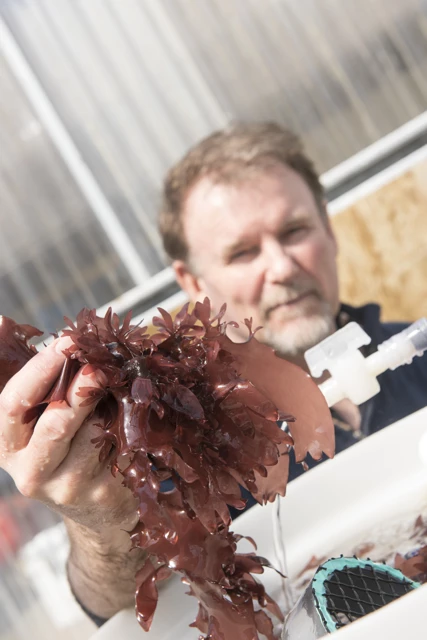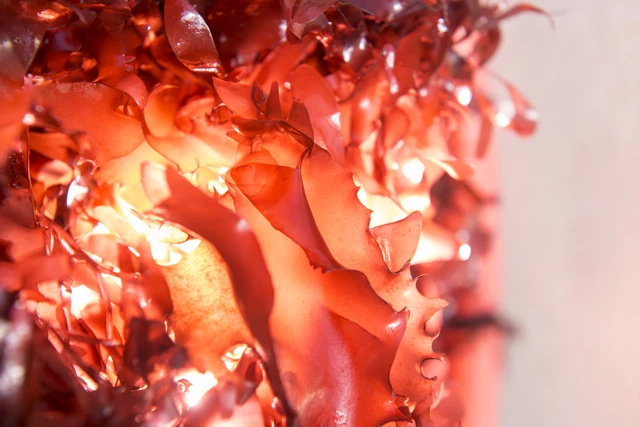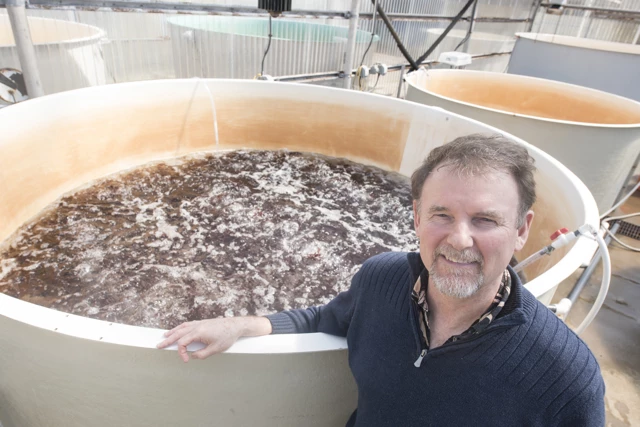Seaweed is widely considered to be a health food. Bacon, on the other hand ... well, bacon isn't. There may yet be hope for pork belly lovers around the world, however. Scientists at Oregon State University (OSU) have patented a lab-bred strain of dulce seaweed, that they claim has "a strong bacon flavor" when fried.
Regular varieties of dulce have been eaten by people for many years, mainly as a food additive or nutritional supplement.
The new form (Palmaria mollis) was developed by a team led by OSU's Prof. Chris Langdon, who has been growing it in tanks of cold seawater at the university over the past 15 years. Not only does it apparently taste like bacon, but its translucent crinkly red leaves even look a bit like it, too.

Langdon's original goal was to develop a seaweed that could be used as a "super-food" to feed farmed abalone. The resulting dulce strain grows faster than its wild counterpart, and is said to be very high in minerals, vitamins and antioxidants, containing up to 16 percent protein by dry weight. Abalone did well on a diet of it, growing at rates "that exceeded those previously reported in the literature."
The idea of exploring its use as human fodder came about when Chuck Toombs from OSU's College of Business was looking for business projects for his students, since the new dulce strain can be farmed. "Culinary research chef" Jason Ball got involved at that point and after some experimentation, the seaweed's unique bacon-like taste was discovered.
Langdon is currently able to grow 20-30 lb (9-14 kg) of dulce per week in his two tanks, but is planning on upping that amount to 100 lb (45 kg). Toomb's students, meanwhile, are preparing a marketing plan for the seaweed, and examining its commercial feasibility as a large-scale aquaculture crop.
Source: Oregon State University via Inhabitat






